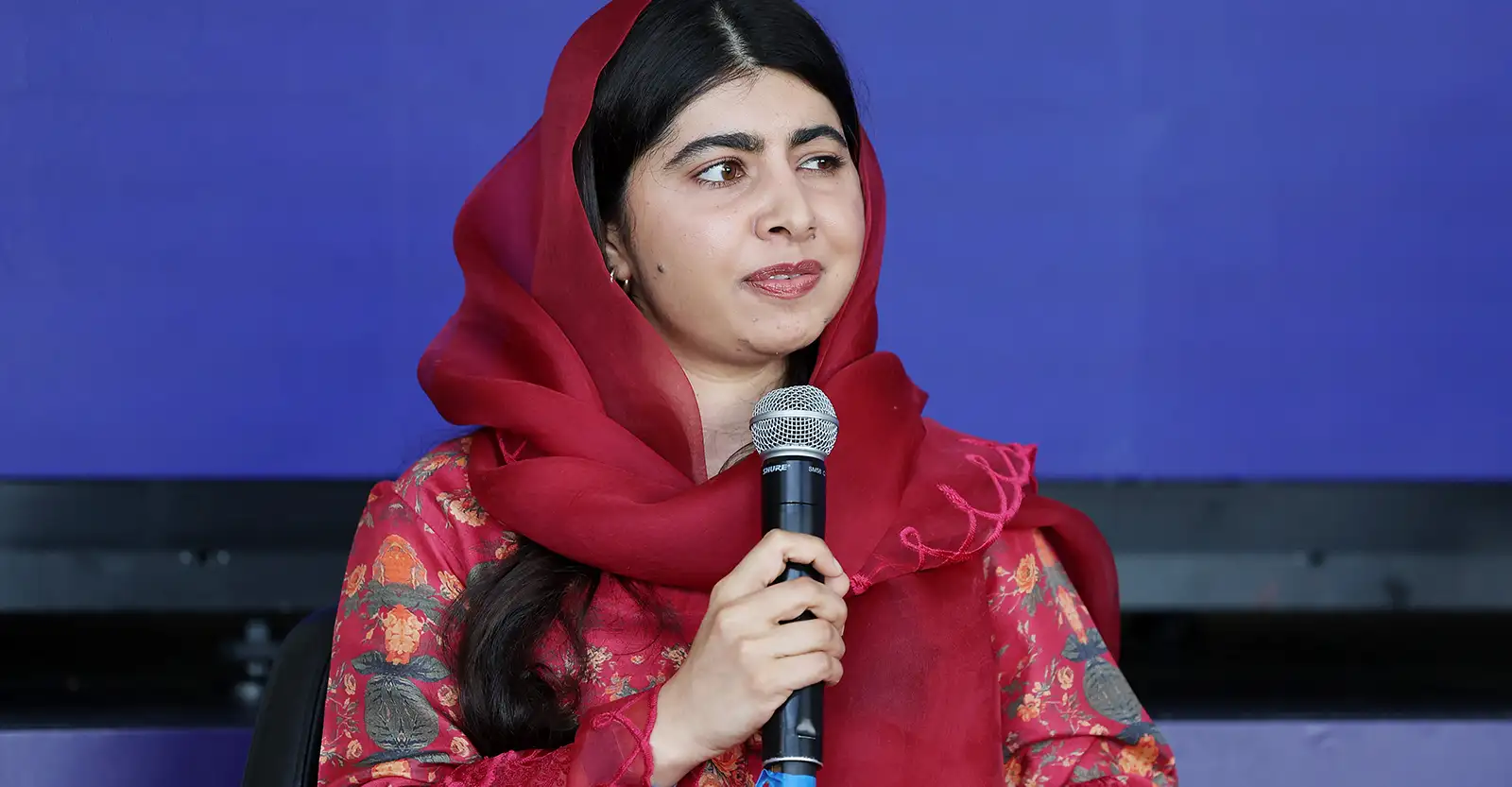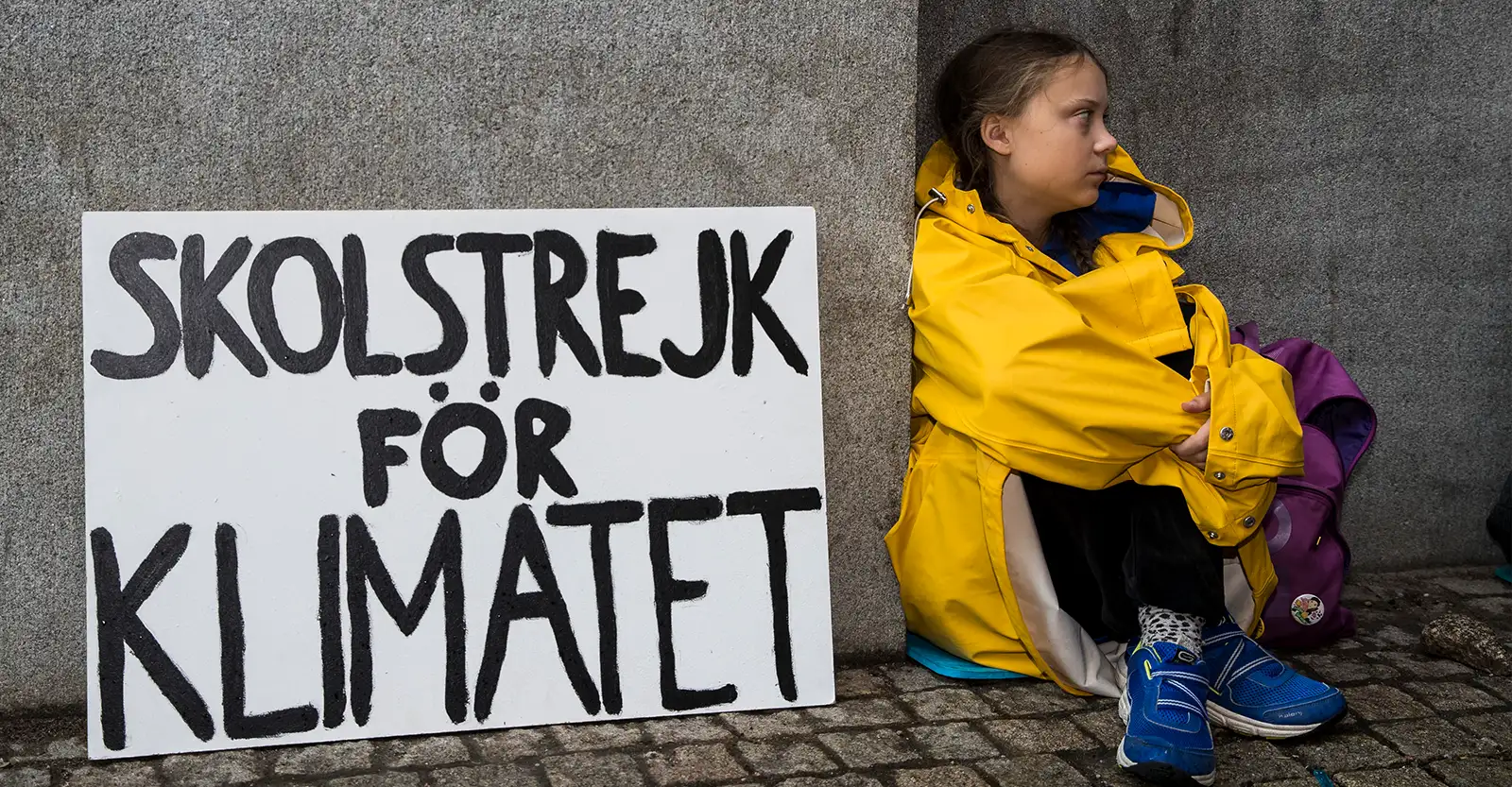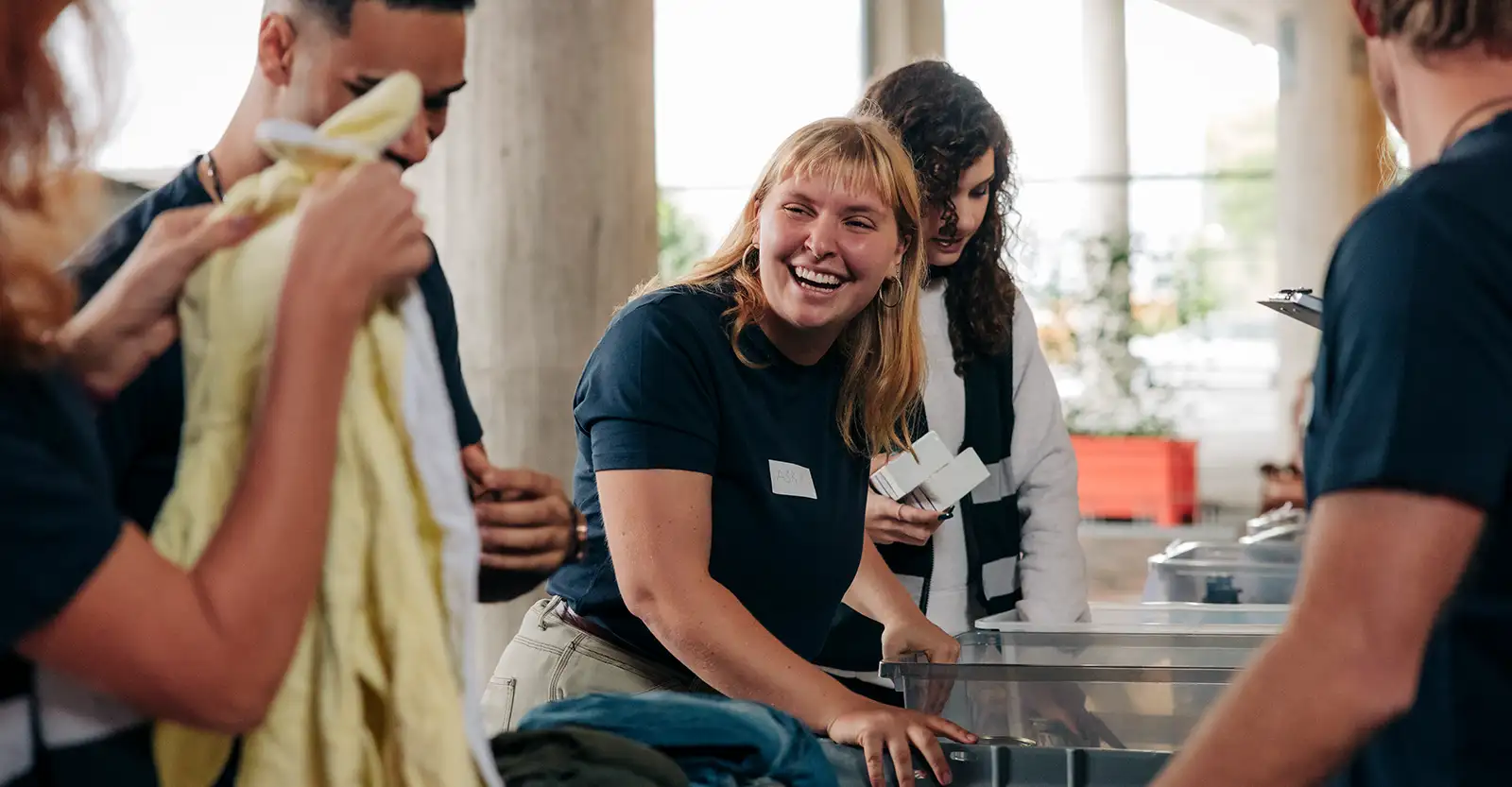Explore how everyday actions, multiplied across communities, can help drive meaningful cultural change during the 16 Days of Activism Against Gender-Based Violence – and discover five practical ways to take part.
When we think of activism, we often picture the extraordinary figures who have shaped entire movements – people like Malala defending girls’ right to education, or Greta Thunberg galvanising global climate action. Their courage inspires us, but the change they spark is only made possible by the countless people who stand alongside them.
And in the goal to end gender-based violence, that collective action matters more than ever.
At Minderoo, we want to forge a future where gender equality is a lived reality for all people. But today, we still live in a culture where violence against women is tolerated, minimised or dismissed – and the impacts are devastating for survivors, families, and communities.
According to UN Women Australia, an estimated 736 million women globally (almost 1 in 3) have been subjected to physical and or sexual violence at least once in their lifetime.
Similarly, their statistics in Australia find that 1 in 3 women will face physical assault, while 1 in 2 will experience sexual harassment.

That’s why 16 Days of Activism Against Gender-Based Violence is so important.
Every year, from 25 November to 10 December, communities across the globe unite to challenge the attitudes and behaviours that allow violence to continue. The campaign calls on all of us to help shift the harmful gender norms and intersecting drivers of violence that women face across the globe.
And while activism can sometimes feel reserved for celebrities, large organisations or accounts with thousands of followers, the truth is far simpler: Activism is action – big or small, public or private, individual or collective.

Movements don’t begin with crowds. They begin with ordinary people choosing to do something meaningful – learning, advocating, speaking up, volunteering, or supporting someone in their lives. Taken together, these small acts build momentum, reshape culture, and challenge the systems that allow violence to persist.
To help you take action this year, we’ve put together five practical ways you can support 16 Days of Activism – and stand up against gender-based violence in your community.
What is 16 Days of Activism?
The 16 Days of Activism Against Gender-Based Violence is a global campaign running annually from 25 November – 10 December:
- 25 November: International Day for the Elimination of Violence Against Women.
- 10 December: International Human Rights Day.
The aim is clear: to drive cultural, behavioural and attitudinal change that prevents violence against women and their children. And that change can start with all of us.
Here are our top 5 ways to take part this year:
1. Hear from people with lived experience.
Stories shape understanding – and understanding shapes change. One of the most meaningful ways to deepen your awareness is by listening to the voices of people who have lived through gender-based violence.
Each year, the State Library of Western Australia curates a reading list featuring powerful personal accounts from both survivors and perpetrators.
Engaging with these lived experiences helps challenge misconceptions and dismantle the cultural attitudes that allow violence to continue.

2. Learn about gender-based violence.
Consuming media that centres people with lived experience and exposes the realities of abuse is a powerful way to take a stand.
There’s No Place Like Home
This award-winning podcast returns for season two, and this season unpacks the moments where concern becomes suspicion, helping listeners recognise the warning signs of abuse. From love-bombing and gaslighting to isolation and financial control, it offers a practical guide to understanding unhealthy and unsafe dynamics, whether you’re supporting someone you care about or reflecting on your own relationships.
See What You Made Me Do
Available as both a book and a three-part documentary, this body of work explores the power structures that allow domestic abuse to continue. It shows how the justice system can reinforce harm – and demonstrates that reducing domestic violence isn’t a task for future generations, but something we can achieve today with the right interventions.
Unbreakable: The Jelena Dokic Story
Produced by Minderoo Pictures, Jelena’s story traces her experience of escaping war, becoming a refugee twice, navigating elite sport, and enduring extreme domestic violence at the hands of her father. Her testimony reveals both the lifelong impacts of abuse and the incredible strength of those who survive it.
3. Volunteer your time.
If you have time, skills or professional expertise to offer, consider supporting a local organisation working with people impacted by family and domestic violence during the 16 Days of Activism.
Whether it’s crisis support, community outreach, fundraising or administrative help, your contribution can make a meaningful difference.

4. Get involved in the campaign.
Start conversations in your own networks – your workplace, sporting club, community group or social circles.
Ask how your organisation can show support during the 16 Days, and what actions can be taken to address gender-based violence more broadly.
Collective action grows from these everyday conversations.
5. Speak up.
Sexist jokes and remarks about women contribute to a culture that tolerates violence. If you notice disrespectful language or behaviour, speak up – even a simple “that’s not on” can interrupt harmful norms.
If you’re not sure where to start, Reach Out’s guide 5 ways to call out your mates for sexist behaviour is a helpful resource.
Changing the culture that enables gender-based violence isn’t the work of one organisation, one campaign or one moment.
It takes all of us learning, showing up, speaking out and supporting those around us.
At Minderoo, we believe in the power of collective action to forge a fair future. Because when countless small actions are multiplied across communities, they create real, lasting change.
Together, we can help build a future where women and children are safe – everywhere, always.
Crisis support resources:
1800RESPECT is the national domestic, family and sexual violence counselling, information and support service.
Contact: 1800 737 732
Lifeline is Australia’s leading suicide prevention service, offering access to 24-hour crisis support.
Contact: 13 11 14
13YARN provides free and confidential 24/7 crisis support for Aboriginal and Torres Strait Islander people.
Contact: 13 92 76
Multicultural Services Centre WA is family relationship support and assistance service for culturally and linguistically diverse (CALD) communities.
Contact: 08 9328 2699
QLife provides anonymous and free LGBTIQ+ peer support and referral for people in Australia wanting to talk about sexuality, gender, bodies, feelings or relationships.
Contact: 1800 184 527
Stay in the loop
Want to stay in the loop on our Gender Equality, Communities, and Natural Ecosystems work? Subscribe to our newsletter.
By signing up with your email, you agree to Minderoo Foundation’s Privacy Policy.